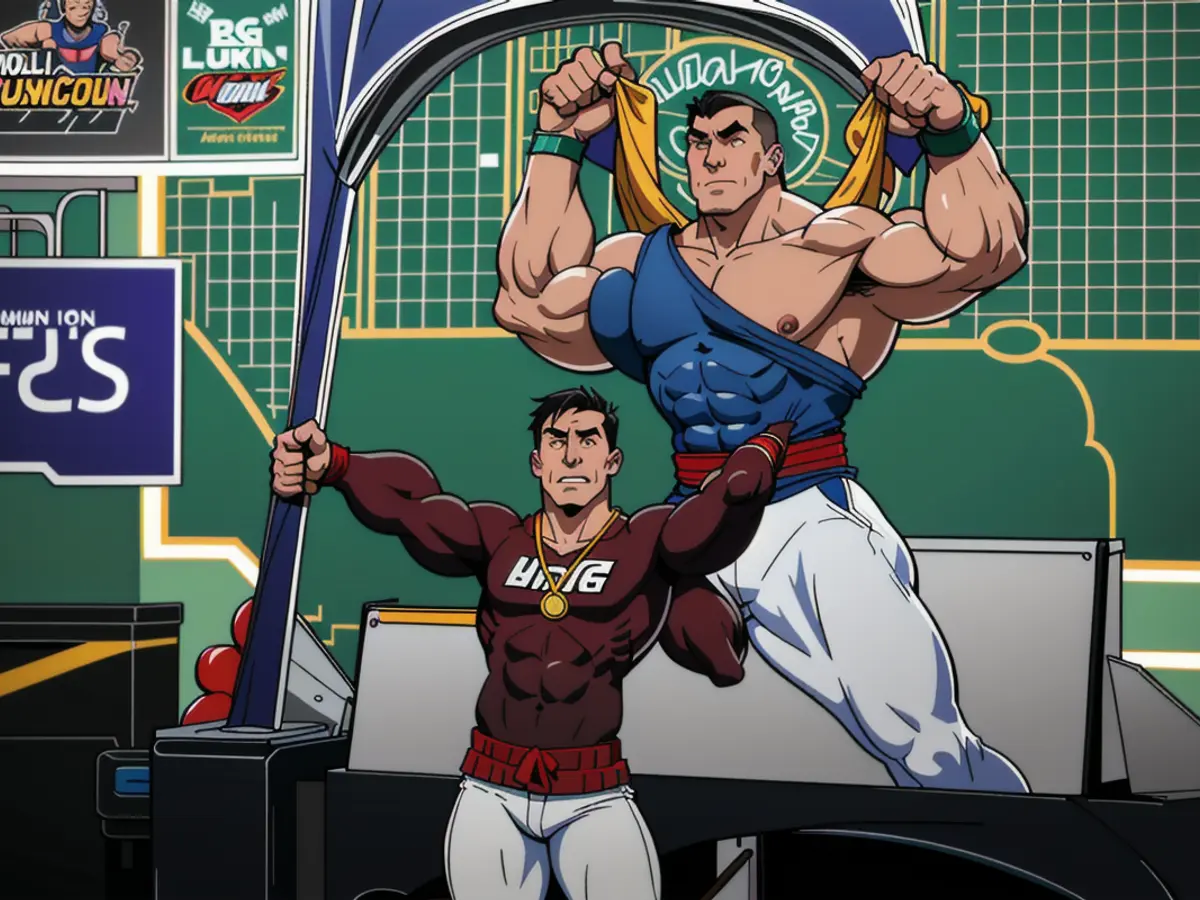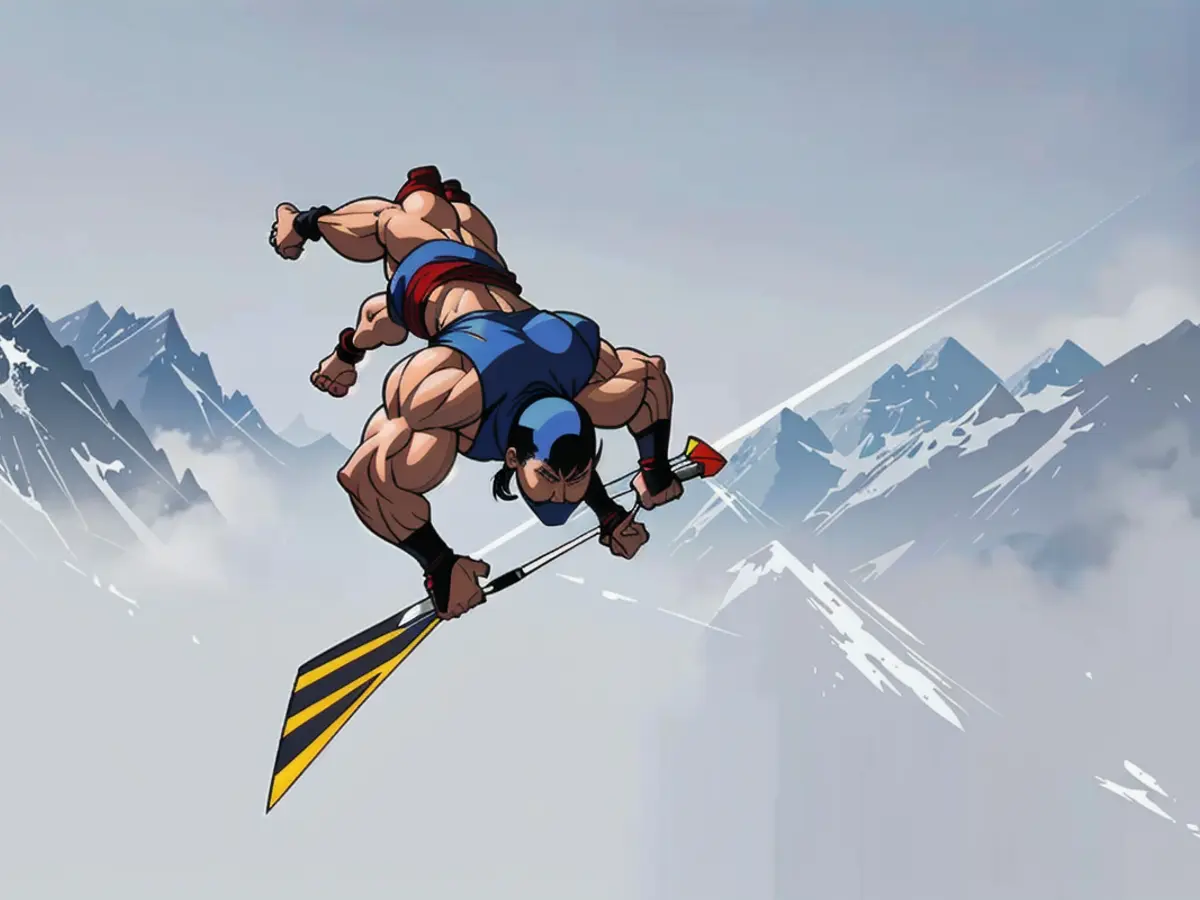The Recently Appointed CEO of X Games Faced Off Against the NCAA and Emerged Defeated; He Proposes Approaches to Improve University Athletics
Once upon a time, Jeremy Bloom was a World Cup champ and Olympic skier, who surprisingly, also played wide receiver for the University of Colorado football team. He also modeled for Tommy Hilfiger jeans.
However, this was two decades ago, a period when the NCAA ruled college sports with an authoritative and often capricious grip, curtailing Bloom's blossoming football career.
“I participated in my first Olympics before even stepping into college, concluding that year as the world's No. 1-ranked skier,” said Bloom (no family relation, as per our investigation). “For the first time in my life, I had the corporate endorsement opportunities to fund the costly sport, to globetrot.”
These endorsements, now commonplace in the modernized college sports industry, were then classified as “unacceptable advantages.” If Bloom wished to play football, the NCAA decreed, he would have to renounce his skiing endorsement earnings.
“And I'm like, ‘Well, that's peculiar, since you permit (Heisman Trophy winner) Ricky Williams to earn a million dollars playing football for (University of) Texas while dabbling in baseball, and (quarterback) Drew Henson amassed over a million dollars (from pro baseball while being an amateur football player) at Michigan,’” Bloom expressed. “So I'm like, ‘Well, that seems hypocritical,’ but they weren't willing to budge.”
Bloom litigated, managing to prolong his tussle with the NCAA long enough to play two seasons with the Buffs before exhausting legal options in 2004, subsequently bidding farewell to college football (the NFL's Eagles would later select him).
These days, Bloom may have relinquished football, but his legal fights paved the way for the subsequent wave of legal challenges that ultimately dismantled the NCAA's stronghold. The judge who ruled against Bloom “was the first judge to establish that student athletes were, in fact, third-party beneficiaries of the NCAA contract, which essentially implied that student athletes held rights,” Bloom said.
Since then, a chain of judicial decisions has extended upon this precedent, gradually divesting the NCAA of its authority and transforming college sports in countless ways while enabling athletes to monetize and transfer to another program. The upcoming year will witness college sports growing even more like a professional venture, as institutions start directly compensating players with salaries (currently, semi-autonomous booster collectives funnel endorsement funds to top athletes at each school).
In a serendipitous twist, Bloom's former team, the Colorado Buffaloes, serves as a paradigm of college sports' new possibilities. Unconventional head football coach Deion Sanders leveraged the multitude of systemic reforms and the star influence of his own two sons and newly crowned Heisman Trophy winner Travis Hunter to metamorphose a desolate program into a bowl contender within just two years.
“It's been quite a surreal experience being part of this for nearly three decades,” Bloom shared in an interview prior to the first round of the inaugural 12-team College Football Playoff last week.
After his athletic career concluded, both on the field and the slopes, Bloom launched an enterprise marketing software company and oversaw it for over a decade before selling it to a private equity firm in 2021. Bloom also launched and remains chairperson of the non-profit Wish of a Lifetime, now partnered with AARP, providing funded dream experiences for individuals in their 80s, 90s, and 100s.
All of this has sculpted Bloom's perspectives on young athletes, sports, marketing, endorsements, as has his role as a TV commentator for various college and Olympic sports networks, his marketing and entrepreneurial expertise, and his service on the board of U.S. Skiing and Snowboarding.
He concurs that the current situation is chaotic, with the NCAA struggling to concoct a legally viable new regulatory framework, and Congress too preoccupied with national matters to intervene. However, Bloom blames the NCAA for the confusion it now administers haphazardly.
“I believe the most disappointing aspect was the NCAA had ample time, energy, and resources to ponder, ‘What if amateurism vanishes, and we find ourselves in a position similar to the one today, what sensible steps would we take?’ And yet, they didn't invest a single moment on that. Instead, they spent every ounce of their time, every penny, simply defending amateurism. When the Supreme Court unanimously ruled in favor of the Austin case, and everything unraveled, they had no strategy.”
He accuses former NCAA Executive Director Mark Emmert of committing “possibly the worst performance in corporate CEO history, at least in sports, as a consequence of his 13-year tenure, concluding in 2023.”
Ultimately, I'm delighted that student-athletes now have ownership over their names, images, and likenesses, as it always bewildered me that they didn't, Bloom stated. I would question, "Why should I play college football, only to surrender my own identity, my own image, and my likeness?" This wasn't a notion that sat well with me.
Regrettably, the NCAA has persisted in attempting to salvage its outdated regime through the courts, and thus far, to no avail.
Bloom expressed, "They're still attempting to sue in federal court to revert to amateurism and another desperate attempt with a Hail Mary. Instead of embracing change and devising plans for the future that make sense, they're still ensconced in court, seeking to rewind time."
To remedy the current turmoil, Bloom proposes that commitments be made more sturdy than they've proven since the portal's inception. He suggests that recruits sign a four-year employment contract, although he acknowledges that even two-year contracts ensuring deliverables from both the athlete and the school would stabilize the portal. Hundreds of athletes abandon their previous programs at the end of each football and basketball season in search of new opportunities throughout the portal.

Coaches grapple with the portal's unpredictable nature, as it permits programs to flourish or falter seemingly overnight. Some players depart as soon as six months after beginning their college careers. This instability has caused some overburdened and dispirited coaches to leave the profession, and it has sparked the emergence of general managers to oversee the recruitment and re-recruitment of athletes on a constant basis.
Amidst this tumult, college sports are generating an unprecedented amount of money. The possibility exists that private equity firms will invest further in certain university programs in exchange for a share of revenues.
Alex Sherman of CNBC reported that four universities have athletic programs valued at over $1 billion each, with The Ohio State University leading the pack at an estimated $1.32 billion.
These numbers will only escalate for SEC and Big 10 schools such as OSU, coinciding with the titanic TV revenue shares that these powerful conferences garner. Thislikewise compels lesser schools to compete.
Tennessee State Coach Eddie George asserted on CNBC that schools should prioritize maximizing revenues, so they can provide for their athletes at a competitive level in a market-driven environment. This necessitates harmony among a school's president, board of trustees, athletic director, and coaches, even with seemingly insignificant alterations.
George, a previous Heisman Trophy recipient at Ohio State, highlighted OSU's decision to begin selling alcohol at games a few years back, as well as its shift from grass to artificial turf in the stadium, enabling more non-football events to be scheduled year-round.
However, rectifying the portal faces several complications, not least the fundamental civil rights issue of granting (frequently Black) athletes the same agency and control over their lives as their coaches, who often move on to another program when a more lucrative opportunity arises.
Bloom proposed, "There must be parity across the board. The only apparent resolution to address this is to put the players in major football and basketball programs, not every college athlete, under contract. You would compensate some players ($100,000) for four years. Others (could) pocket millions, as seen currently. However, this would solve the issue where players can simply retreat into the portal whenever they have a dispute with their coach, or if they're benched, or other normal sports-related circumstances."
Employment agreements would also alleviate the "channel conflict" that arises when a school has a marketing deal with a company like Nike, while an individual athlete has an agreement with another brand such as Puma or New Balance.
Bloom suggested, "There ought to be some common-sense thinking when it comes to this. If a major university sponsor is United Airlines, it's logical that student-athletes cannot seek sponsorships from Delta or any other airline. There's a separation between the two since schools don't have endless resources. If you're going to start paying kids on contract, you wouldn't want to dilute the revenue opportunities for the schools."
Additional consolidation might be imminent, potentially to two mega-conferences, with approximately 50 prominent schools separating from the conventional model and forming a more professional league that remains associated with schools.
This, in turn, would spawn "player associations, collective bargaining agreements, and all the rest. But that would simplify numerous uncertainties involving boosters that are simply creating collectives, whatever that means. All of this becomes smoother if you professionalize it," Bloom stated.
Bloom is currently focusing a considerable amount of time pondering the formation and constitution of leagues. Two weeks back, he was appointed CEO of the X Games, which has been spun off from ESPN and is now primarily owned by MSP Sports Capital, a private equity firm with investments in the NBA's Phoenix Suns, the McLaren Formula 1 racing team, and a variety of European soccer franchises.
Bloom's evolving strategy is to extend the X Games beyond its traditional winter and summer windows, primarily due to ESPN's traditional programming requirements during sports lulls.
For this, Bloom aims to establish global competitions where athletes specializing in X Games sports like snowboarding or BMX engage frequently in a systematic progression leading up to the finals themselves.
Additionally, it's crucial to provide digital content centered around these leagues and competitions, catering to the sports enthusiasts' preferences. Recently, X Games sealed a deal with Roku, complementing its existing partnership with ESPN. The platform will further expand its reach on popular social media platforms, such as YouTube, Snapchat, Instagram, X, and TikTok.
Bloom commented, "You're utilizing those clips, ideally in real-time, to motivate people to tune into the broadcast instead of merely enjoying the highlights online." With numerous viral moments hovering over various sports, it's only a matter of time before viewers develop interest in X Games' offerings. Moreover, as Bloom suggested, "We have some of the most marketable athletes globally, yet we seem to be underutilizing their promotional potential."
While there is still a plethora of planning to be done regarding X Games' future moves, Bloom believes in the success of leagues that have successfully transitioned individual sport athletes to team settings, like MSP's McLaren F1 team.
- Jeremy Bloom, despite his success in skiing and endorsements, faced restrictions from the NCAA when he wanted to play football, as his skiing earnings were classified as "unacceptable advantages."
- Bloom compares the NCAA's treatment of his skiing endorsements to the allowance of Ricky Williams and Drew Henson to earn from other sports while playing college football.
- Bloom's legal fights against the NCAA eventually led to a ruling that established student-athletes as third-party beneficiaries of the NCAA contract, paving the way for further changes in college sports.
- In recent years, Bloom has been appointed as CEO of the X Games, which is now primarily owned by MSP Sports Capital, and he aims to extend the X Games beyond its traditional windows and provide digital content to cater to sports enthusiasts.





